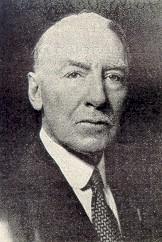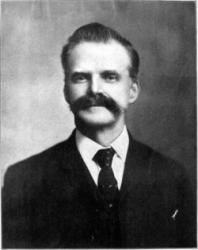Planning worship?
Check out our sister site, ZeteoSearch.org,
for 20+ additional resources related to your search.
- |
User Links
Person Results
John R. Sweney

1837 - 1899 Person Name: Jno. R. Sweney Composer of "[Come, trembling sinner, in whose breast]" in The Voice of Triumph (19th ed.) John R. Sweney (1837-1899) was born in West Chester, Pennsylvania, and exhibited musical abilities at an early age. At nineteen he was studying with a German music teacher, leading a choir and glee club, and performing at children’s entertainments. By twenty-two he was teaching at a school in Dover, Delaware. Soon thereafter, he was put in charge of the band of the Third Delaware Regiment of the Union Army for the duration of the Civil War. After the war, he became Professor of Music at the Pennsylvania Military Academy, and director of Sweney’s Cornet Band. He eventually earned Bachelor and Doctor of Music degrees at the Academy.
Sweney began composing church music in 1871 and became well-known as a leader of large congregations. His appreciators stated “Sweney knows how to make a congregation sing” and “He had great power in arousing multitudes.” He also became director of music for a large Sunday school at the Bethany Presbyterian Church in Philadelphia of which John Wanamaker was superintendent (Wanamaker was the founder of the first major department store in Philadelphia). In addition to his prolific output of hymn melodies and other compositions, Sweney edited or co-edited about sixty song collections, many in collaboration with William J. Kirkpatrick. Sweney died on April 10, 1899, and his memorial was widely attended and included a eulogy by Wanamaker.
Joe Hickerson from "Joe's Jottings #9" used by permission
John R. Sweney
Charles Edward Pollock
1853 - 1928 Person Name: Chas. Edw. Pollock Composer of "BESSIE" in The Brethren Hymnal Charles Edward Pollock USA 1853-1928. Born at Newcastle, PA, he moved to Jefferson City, MO, when age 17. He was a cane maker for C W Allen. He also worked 20 years for the MO Pacific Railroad, as a depot clerk and later as Assistant Roadmaster. He was a musician and prolific songwriter, composing 5000+ songs, mostly used in Sunday school settings and church settings. He took little remuneration for his compositions, preferring they be freely used. He produced three songbooks: “Praises”, “Beauty of praise”, and “Waves of melody”. In 1886 he married Martha (Mattie) Jane Harris, and they had three children: Robert, Edward, and a daughter. He died in Merriam, KS.
John Perry
=================
Pollock, Charles Edward. (Jefferson City, Missouri, 1853-1924). Records of Jefferson City indicate the following:
1897 clerk at depot; residence at 106 Broadway (with Mildred Pollock)
1904-1905 cane maker for C. W. Allen
1908-1909 musician; residence at 106 Broadway (with wife Matty)
1912-1913 residence at St. Louis Road, east city limits
--Wilmer Swope, DNAH Archives
Note: not to be confused with Charles Edward Pollock (c.1871-1924).
Charles Edward Pollock
Thomas Augustine Arne

1710 - 1778 Person Name: Thomas A. Arne Composer of "ARLINGTON" in The Evangelical Hymnal Dr. Thomas Augustine Arne was born March 12, 1710, in London; became early celebrated as a composer, and established his reputation by settling Milton's "Comus" to music - light, airy, and original; he composed many songs, and nearly all his attempts were successful; died March 5, 1778, aged 68.
A Dictionary of Musical Information by John W. Moore, Boston: Oliver, Ditson & Company, 1876
Thomas Augustine Arne
Robert Simpson
1790 - 1832 Adapter of "[Come, humble sinner]" in The Cokesbury Hymnal Robert Simpson, of Scotland; b. 1790; d. 1832
Evangelical Lutheran Hymnal, 1908
Robert Simpson
Edmund Jones
1722 - 1765 Author of "Come, humble sinner, in whose breast" in Hymnal of the Methodist Episcopal Church Jones, Edmund, son of the Rev. Philip Jones, Cheltenham, was born in 1722, and attended for a time the Baptist College at Bristol. At the age of 19 he began to preach for the Baptist Congregation at Exeter, and two years afterwards he became its pastor. In 1760 he published a volume of Sacred Poems. After a very-useful ministry he died April 15, 1765. From an old manuscript record of the Exeter Baptist Church, it appears that it was under his ministry in the year 1759, that singing was first introduced into that Church as a part of worship. As a hymn-writer he is known chiefly through:—
Come, humble sinner, in whose breast. This hymn appeared in Rippon's Baptist Selection, 1181, No. 355, in 1 stanza of 4 lines, and headed, "The successful Resolve—'I will go in unto the King,' Esther iv. 16." It has undergone several changes, including:—
1. "Come, sinner, in whose guilty breast." In the Methodist Free Church Sunday School Hymn Book, 1860.
2. “Come, trembling sinner, in whose breast." This is in a great number of American hymn-books.
3. “Come, weary sinner, in whose breast." Also in American use.
Miller, in his Singers & Songs of the Church, 1869, p. 333, attributes this hymn to a Welsh Baptist hymn-writer of Trevecca, and of the same name. Rippon, however, says in the first edition of his Selection that Edmund Jones, the author of No. 333, was pastor of the Baptist Church at Exon, Devon. This decides the matter. [Rev. W. R. Stevenson, M.A.]
--John Julian, Dictionary of Hymnology (1907)
================
Jones, Edmund, p. 605, ii. In The Church Book, by L. W. Bacon, N. Y., 1883, No. 279 begins with stanzas ii. of Jones's hymn, "Come, humble sinner, &c," and begins:—"I'll go to Jesus, though my sin." Also note that in that article the words “author of No. 333," should read "author of No. 355."
--John Julian, Dictionary of Hymnology, Appendix, Part II (1907)
Edmund Jones
John Spencer Camp

1858 - 1946 Composer of "ABIDING GRACE" in The Cyber Hymnal Born: January 3, 1858, Middletown, Connecticut.
Died: February 1, 1946. The funeral was held at Asylum Hill Congregational Church in Hartford, Connecticut.
Buried: Indian Hill Cemetery , Middletown, Connecticut.
Camp graduated from Wesleyan University in 1878 and received a Master of Arts in 1881. He went on to study law, but found that music was his true vocation. In 1882, he became organist at the Park Congregational Church in Hartford, Connecticut, and in 1906 organist at the Center Church in Hartford, Connecticut. He left the Center Church in 1921 to become director of the Austin Organ Company. He was awarded a Doctorate in Music by Trinity College in 1921, and a second doctorate from Wesleyan University in 1933.
Camp was a founder of the American Guild of Organists, 1896 and was President of the Connecticut Music Teachers’ Guild, 1898. For many years he conducted the Hartford Philharmonic Orchestra, which he organized. Among his benefactions is the John Spencer Camp Professorship of Music at Wesleyan University.
--www.hymntime.com/tch/
John Spencer Camp
Robert Boyd
Person Name: Boyd Composer of "SALVATION" in The Southern Harmony, and Musical Companion (New ed. thoroughly rev. and much enl.)
Robert Boyd
A. Williams
1731 - 1776 Person Name: Aaron Williams Composer of "[Come, humble sinner, in whose breast]" in Sacred Praise Aaron Williams (b. London, England, 1731; d. London, 1776) was a singing teacher, music engraver, and clerk at the Scottish Church, London Wall. He published various church music collections, some intended for rural church choirs. Representative of his compilations are The Universal Psalmodist (1763)— published in the United States as The American Harmony (1769)—The Royal Harmony (1766), The New Universal Psalmodist (1770), and Psalmody in Miniature (1778). His Harmonia Coelestis (1775) included anthems by noted composers.
Bert Polman
A. Williams
Wilson Marion Cooper

1850 - 1916 Person Name: W. M. Cooper Alto from of "COME, HUMBLE SINNER (FAIRFIELD)" in The Sacred Harp Produced a major revised edition of the Sacred Harp fasola tunebook, 1902.
Wilson Marion Cooper


 My Starred Hymns
My Starred Hymns

